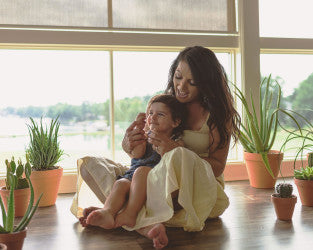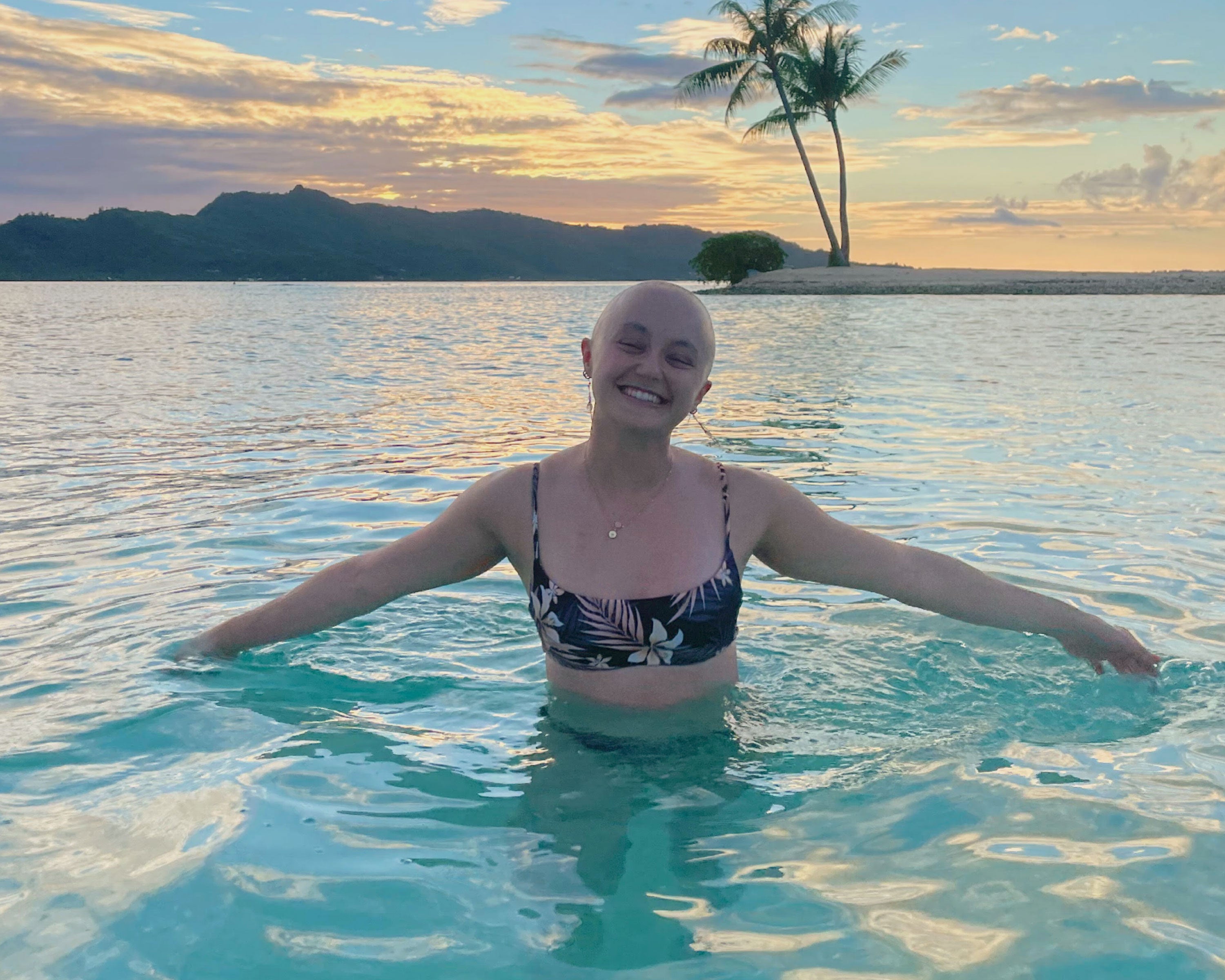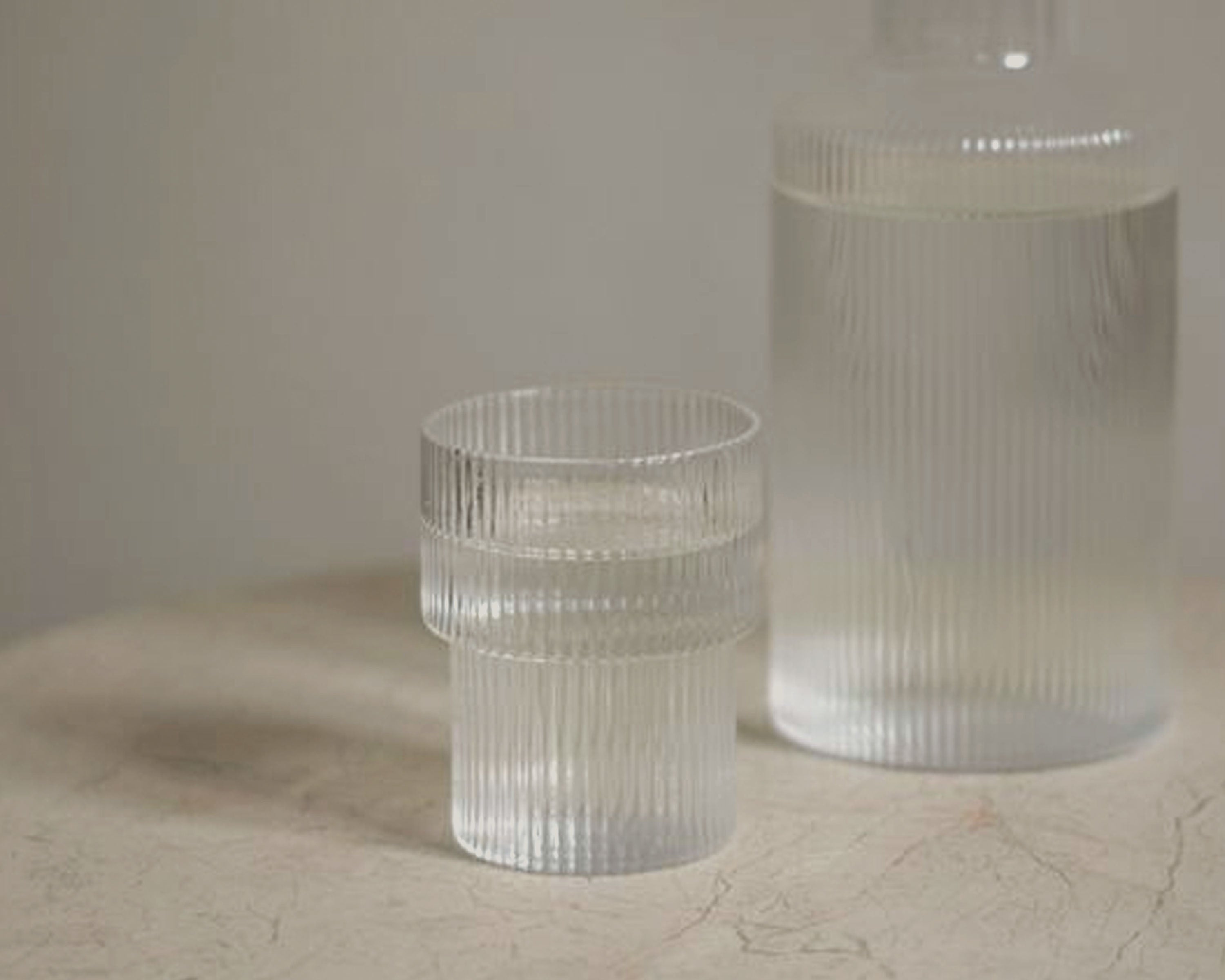At 25 years old, my urge to have a baby was so strong that you could say I was a bit obsessed. Month after month, my husband and I tried, unsuccessfully, to conceive. But I knew that I was young, and that it was just a matter of time. I proceeded to order a big pack of pregnancy tests, and anytime I saw even the tiniest sign that I might be pregnant, I’d take a test.
Finally, after trying for over a year, we decided it was time to pursue fertility treatment. I had what’s called infertility with “no explanation” — meaning there was no cause that they could find. The good news was that in Sweden, where I come from, each person is given three free tries with IVF. But the not-so-good news is that there’s a waitlist to do IVF in Sweden, and we had to wait our turn, which took over a year.
Motherhood on hold
Just when the fertility clinic called to say our turn had come, I felt a small lump, not bigger than a marble, in my left breast. Unbelievably to me, the lump turned out to be cancer. The doctor recommended a lumpectomy to remove the tumor and the surrounding tissue, and told me I’d have to wait until I finished treatment before it was considered safe for me to attempt IVF. It’s not an exaggeration to say that the grief I felt about putting motherhood on hold was worse than finding out I had cancer.
Fast-forward about two and a half years: with the tumor removed, 33 radiation treatments completed, and treatment officially behind me, my doctor finally gave me the green light to start IVF. With the 20 eggs they were able to retrieve from me, and my husband’s sperm, we had created 16 embryos. We inserted one embryo and froze the rest.
After the first attempt at IVF failed, we decided to take a break before starting round two — simply to try to relax and bring a little fun into our lives. I went abroad for a short trip with a girlfriend of mine, and while I was away, I couldn’t shake this feeling that something was “off” with my husband. We were always such a lovey-dovey couple, and suddenly he seemed to be distant in his texts. Still, I wasn’t prepared for what I heard when I arrived back home: He told me that he didn’t love me anymore and wanted to get a divorce. The man that I was sure I would grow old with wanted out, and our relationship ended before my 30th birthday.
It was devastating, but the one "silver lining" after my divorce was that I was free to make decisions about where I wanted to live, without anything holding me back. I had always dreamed of studying and living in the United States, so I signed up to take a business executive course in Boston and had a job lined up. Part of preparing for the move from Sweden to the U.S. entailed doing all the necessary health checks to apply for travel health insurance — which included a full physical and a mammogram. I couldn’t believe the results: the breast cancer had returned.
An unexpected breast cancer recurrence
It turned out that I had two new, very small tumors at the site of my scars — likely a result of the doctor not removing enough margin during the lumpectomy surgery years before. It was a stage-1 recurrence, and I was determined to tackle it head on. So instead of fulfilling my dream of going to the U.S., I became a full-time patient, getting the absolute most aggressive treatment including a mastectomy and the longest chemo cycle available. I lost my hair, lost my boob, and lost a year that I had planned for my life. I decided that cancer would take that one year from me, but no more than that.
When that year was behind me, I got a chance to go to Silicon Valley through one of my clients to explore business opportunities. As soon as I arrived, I had this sure feeling that San Francisco was where I belonged. Ten months later, I officially made the move.
Everything fell into place: a career opportunity I couldn’t pass up in the U.S., and then a relationship. I met my now-husband, Kris, on Match.com, and even though I didn’t think it was possible to fall in love so hard again, Kris was my big love. We moved in together, got married two years later, and tried — of course — having a child. Unsuccessful, we found our way back to a fertility clinic to attempt IVF.
Since I’d had breast cancer in the past, there was one caveat: before I was allowed to start on the hormonal treatments where they’d stimulate my eggs, they needed to ensure I didn’t have a recurrence. Let's just say it was a miracle that they required a mammogram, because we found out that I had breast cancer in my right breast. I was told I’d need to have a mastectomy and remove that breast (the left one was already gone)‚ but that I wouldn’t need chemo or other treatments because the cancer was stage zero. That was a relief, because I just wanted to get the surgery over with so we could start IVF and our family.
A curveball came while I was recovering from the mastectomy surgery. I had a hard time breathing, and was rushed to the ER where they did CT scans to examine me further. The scan showed I had several spots in my spine and my pelvis — a possible sign of cancer that had spread.
It turned out that all those years that I thought I was clear, the cancer had spread and had found its way to my bones. My new diagnosis: stage four metastatic breast cancer. There I was — a 37-year-old looking forward to starting this new life and family with a man I loved, and instead the doctors gave me a death sentence. They told me I might have two to three years left to live. I was not even going to turn 40, and I was never going to be a mother.
Although my life expectancy was very short, before they removed my ovaries and put me into post-menopausal state, we did an egg retrieval. We removed whatever eggs I had without stimulating me too much with hormones. We got three really good eggs and created three embryos that we froze.
Unfortunately my first line of treatment against the cancer failed. But my second line of treatment was really great. As a result, I had no tumors for over three years, and my oncologist thought that my life expectancy was much better because I was responding so well to these treatments.
The big decision
Kris and I began asking ourselves, “Should we do something about those embryos, like consider surrogacy?” It’s a huge and tough decision to make: having a child even though you know you're living with a deadly disease and may pass before that child even knows you. The thought filled me with grief; I couldn’t imagine bringing that grief into a child’s life.
On the other hand, I thought about the possibility that I could live for 10, 15, 20 years — what if I'm one of those “unicorns” who gets a longer lease on life. Would I regret not having a child?
With our three embryos, the fertility doctor said we had a 7% chance that one of these would work. Our odds were small, but we decided we had to try.
After a long wait, we were matched with our wonderful surrogate Misha. We transferred two of those three embryos and waited. After 15 years of trying to have a baby, I finally got that positive result: it was successful. Our son, Alex, was born on October 26, 2018, a date that will always be considered the happiest day of our lives.
I recently celebrated my six year metastatic breast cancer anniversary. I’ve already beat the odds, making it past the two to three years I was initially told I’d have left. Now my goal is to make it to Alex's fifth year birthday, and then to keep setting more goals. Obviously my ultimate goal is to be there for him during all his life milestones and his life's journey, but I have to be realistic.
That's why research is so important. I’ve spent a lot of my time raising awareness and money through METAvivor for research into new treatments for metastatic breast cancer — and advocating for all who are affected by it — and will continue to do so. Every new treatment that comes to market is a chance to fulfill my ultimate hope: more time with my husband and our son.
Adiba Barney is living with Stage 4 metastatic breast cancer. She is the author of When Life Hands You Cactuses, Make Margaritas. All profits from book sales go to metastatic breast cancer research.
This article is for informational purposes only and is not a substitute for medical advice, diagnosis, or treatment. Please keep in mind every individual’s situation is different, and you should not take any actions concerning your body and well-being before consulting with a healthcare professional.
Let your loved ones know what you actually need
Easily add items from the Alula shop to your registry, and share it with friends and family who ask.



